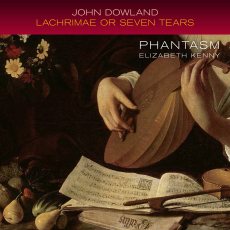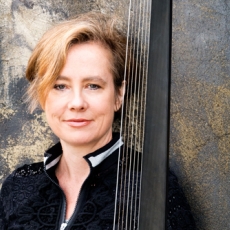Phantasm - Dowland: Lachrimae - MusicWeb International
Having been a little unenthusiastic about a recent Harmonia Mundi recording of the solo viol music of William Lawes - not the Linn recording mentioned below - I was pleased to be able to report at the end of that review that an initial run-through of this new recording of Dowland was much more promising and so it proves, even though the competition from Jakob Lindberg, Jordi Savall and Peter Holman and their teams is strong, not to mention an earlier recording from Fretwork (Virgin/Erato), now download only.
Dowland seems to have had some cause to be depressed - he missed the advancement he deserved at home and had to go abroad to obtain it - but the truth is that he appears to have been a person of cheerful disposition who made an art-form out of the melancholy that was so fashionable at the time that Robert Burton wrote a whole book on The Anatomy of Melancholy (1621) and John Aubrey was able to claim in his Brief Lives that he had suffered from what we would now call depression since he was born, in the very year that Dowland died.
Trendy though such melancholy may have been, it enabled Dowland to produce arguably the first great non-vocal masterpiece of English music, as evidenced by Benjamin Britten's interest in the work which led to his own Lachrymae, reflections on a song of Dowland, for viola and piano, Op.48, arranged for viola and orchestra, Op48a. There's a recent Linn recording of the orchestral version, with Young Apollo and the Serenade for Tenor, Horn and Strings which I hope to hear and review in the near future. (CKD478: Máté Szücs; Aldeburgh Strings/Markus Däunert). Nigel Harris has already reviewed this in generally positive terms and other reviewers have also been positive.
In addition to the seven pieces which contain the word Lachrimæ, the collection contains several other works, mostly dance music concluding with a stately pavan (pavane) and several almands (allemandes), a slower dance than the later version of that name. Even the livelier galiards (galliards), Queen Elizabeth's favourite dance, are more than tinged with melancholy. One of the liveliest and most attractive of these dances, The King of Denmarks Galiard, reminds us that the composer had to seek patronage overseas, having been passed over for promotion in England, perhaps because he had developed a sympathy for Roman Catholicism.
These dances are performed after the seven sections of Lachrimæ, the order as printed in the first edition. If you prefer to hear them interspersed with the Lachrimæ, you need to look elsewhere.
I'm not a great fan of depressing literature or music but in Dowland's hands the theme of melancholy is no more unsettling than the depressed robot in The Hitchhiker's Guide to the Galaxy. He was even able to work it into a Latin joke in one of the pieces included in the Lachrimæ collection: Semper Dowland semper dolens (Dowland is always lamenting).
Another of the pieces in the collection commemorates the funeral of Sir Henry Unton: I strongly recommend a visit to the National Portrait Gallery in London to see the magnificent painting of Unton's life at home and as an ambassador abroad and his very impressive funeral. If you can't make the trip, there are plenty of reproductions online: the official version is here. Dowland's piece captures the spirit of the event just as wonderfully as that amazing painting, with its hints of the Lachrimæ theme and of Dowland's most famous song ‘In darkness let me dwell' - recorded by Mark Padmore with Elizabeth Kenny and Craig Ogden in a Dowland and Britten collection.
Readers of this review may well also be interested in three Linn reissues of music of this period performed by Phantasm:
- John JENKINS (1592-1678) Five-part Consorts (Fantasies and two Pavans)
- Six-part Consorts (Fantasies, Pavans and In Nomines)
- John WARD (c.1589-1638) Consort music for five and six viols
- Orlando GIBBONS (1583-1625) Consorts for Viols
All remain at full price, so I'm not sure of the reason for the reissues with a new prefix, except to spoil the covers with thick black borders; in the case of the Gibbons the faces on the cover are blotted out with a black square, as in the case of the music by Byrd and Tallis (Four Temperaments BKD487) but that doesn't spoil the quality of the music and the excellent performances.
There's also a fairly recent Phantasm recording of the music of William LAWES (1602-1645) The Royal Consort on Linn CKD470.
I'm happy to report that all the music is delightful - almost all of it much livelier and less introspective than the Dowland if that's what you prefer - and the performances and recording excellent (16-bit only for the Jenkins albums, which were originally recorded by Avie, but you wouldn't notice). You'll find words such as ‘assurance' and ‘verve' in the reviews of these recordings; I couldn't put it better. Nothing on these reissues quite matches the intensity of the Dowland but the Gibbons in particular is far from trivial.
Everything to which Phantasm turn their hands is well worth hearing and this Dowland release is no exception. With very good sound, especially in 24/96 format, and a very fine booklet, including facsimile excerpts from the first edition, this could well be the version of choice even in preference to those listed as benchmark recordings.


